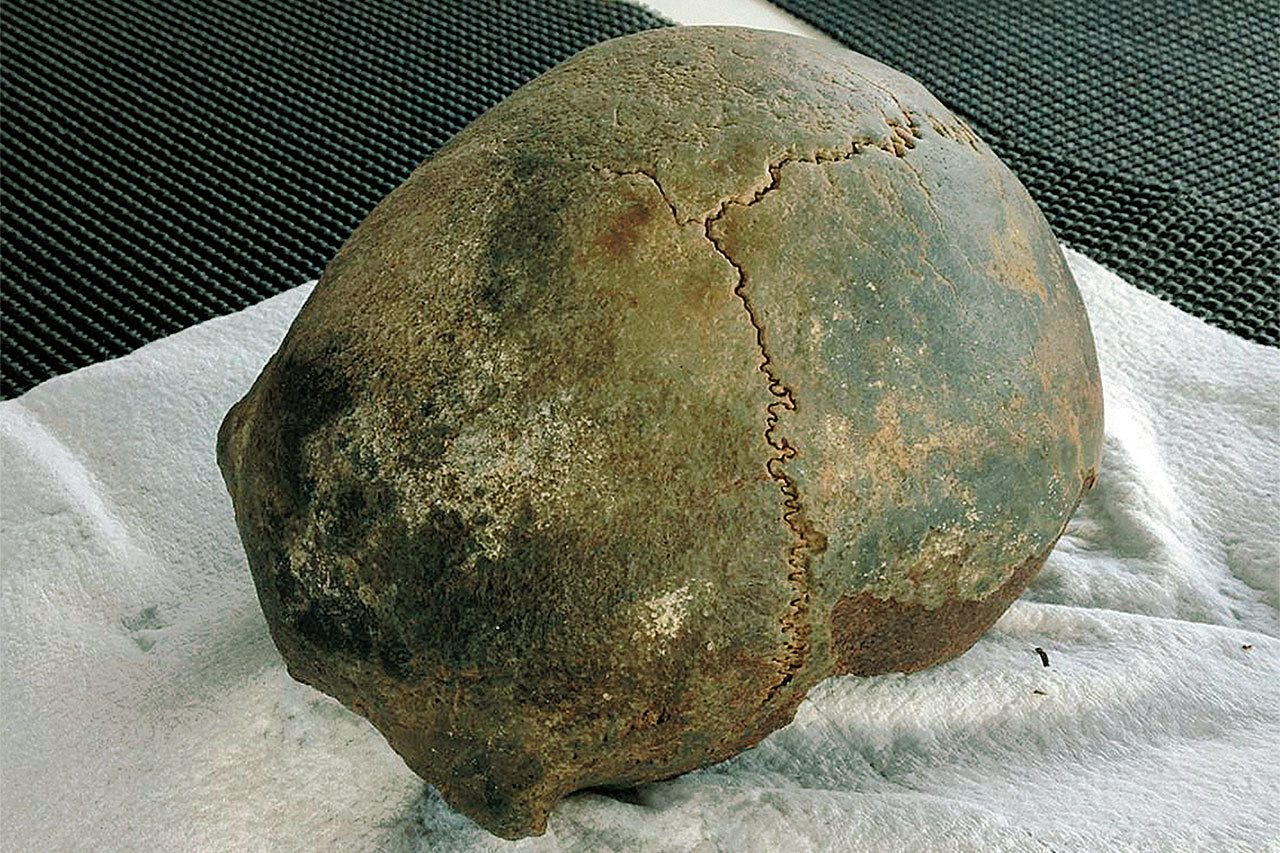The 2,300-year old skull found in a crab pot off Ocean Shores in 2014 has been positively identified as Native American by an anthropologist at the Department of Archaeology and Historic Preservation.
“Dr. Guy Tasa determined that it was indeed Native American,” said State Historic Preservation Officer Allyson Brooks, Ph.D. Dr. Tasa is the Washington State Physical Anthropologist and in charge of the identification, preservation, excavation and repatriation of human remains.
Following state law, the agency has informed a number of area tribes of the findings, including the Chehalis, Puyallup, Quinault, Shoalwater Bay and Squaxin Island nations. “We expect to hear from the interested tribes and then will work on repatriation,” said Brooks. “They will determine who actually takes the remains.”
Dr. Tasa performed the analysis on the skull. Earlier this month the skull was determined to be 2,300 years old by Beta Analytics in Miami, who performed a carbon dating test.
This on the heels of word that Kennewick Man, 9,000-year old remains found in 1994 at Columbia Park in Kennewick and also referred to as The Ancient One, were confirmed to be of Native American ancestry after DNA testing by the Army Corps of Engineers.
An amendment to the Water Infrastructure Improvements Act for the Nation, co-sponsored by Congressman Derek Kilmer and others, was passed by Congress Dec. 13 and specifically calls for the remains to be officially turned over to the Department of Archaeology and Historic Preservation, which then will be turned over to the claiming tribes for reburial. According to a recent blog from the Burke Museum on the University of Washington campus, where the remains are temporarily housed, the museum will turn the remains over to the state as soon as the Act is signed by President Obama.


